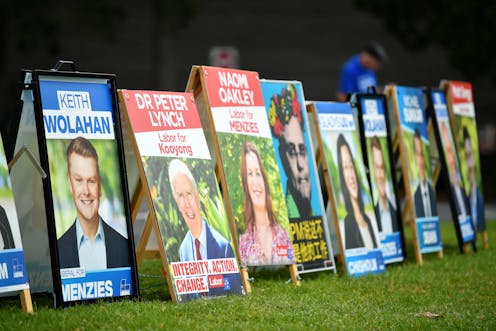A Facebook executive explains the last-minute election battle on social media – podcast
- Written by Benjamin Clark, Deputy Engagement Editor, The Conversation

What do One Nation’s Pauline Hanson and Labor’s Tanya Plibersek have in common? They are both winning the battle for eyeballs on social media, says a top Facebook official.
In the final episode before polling day of our election podcast Below the Line, our regular panel talks to Mia Garlick, Facebook’s Director of Policy in Australia and New Zealand, about the ways politicians use the social media platform in election campaigns. Our political scientists quiz Garlick on how transparent the company is about the political advertising it carries and the assistance it provides to big-spending campaigners.
Video content is an increasingly important way for politicians to get their messages across to online audiences. Aside from Hanson and Plibersek, Garlick says politicians who are doing video messaging particularly well this election include the Liberal party’s Lucy Wicks and Jason Falinski, and founder of the Reason party Fiona Patten.
Andrea Carson says the digital campaign will ramp up once the three-day blackout on broadcast and newspaper political ads comes into effect on Wednesday evening, because online ads are outside the law’s reach. Jon Faine describes the law as “absurd” in the digital age, akin to using Morse Code.
Faine also asks the panel why Prime Minister Scott Morrison vowed this week to no longer be “a bulldozer”. “It was a significant shift on Scott Morrison’s part,” says Anika Gauja, in recognition that the public seems to want a more positive campaign than it has been getting. But with more than five million pre-poll and postal votes already cast, according to ABC election analyst Antony Green, has Morrison’s mea culpa come too late?
Below the Line is a limited-edition election podcast brought to you by The Conversation and La Trobe University. It is produced by Courtney Carthy and Benjamin Clark.
Below the Line will broadcast one last episode after the election result next week. If you have a question you would like the panel to answer, email us at: belowtheline@theconversation.edu.au
Disclosures: Andrea Carson has received funding for research projects from Facebook.
Jon Faine does freelance work for Industry Super Australia, a peak body for industry superannuation funds.
Simon Jackman is an unpaid consultant on polling data for the Climate 200 network of independent candidates.
Image credit: James Ross/AAP
Authors: Benjamin Clark, Deputy Engagement Editor, The Conversation





